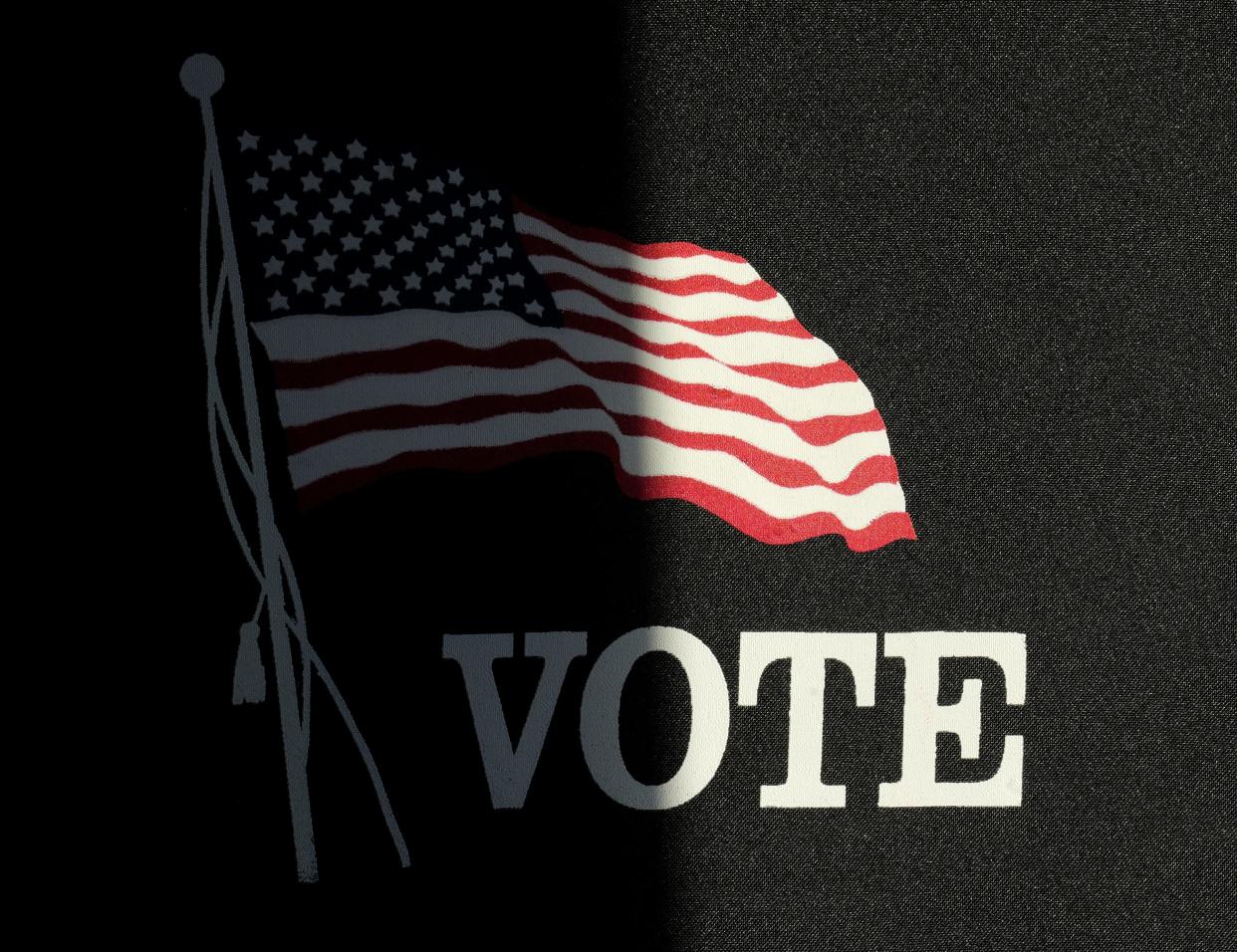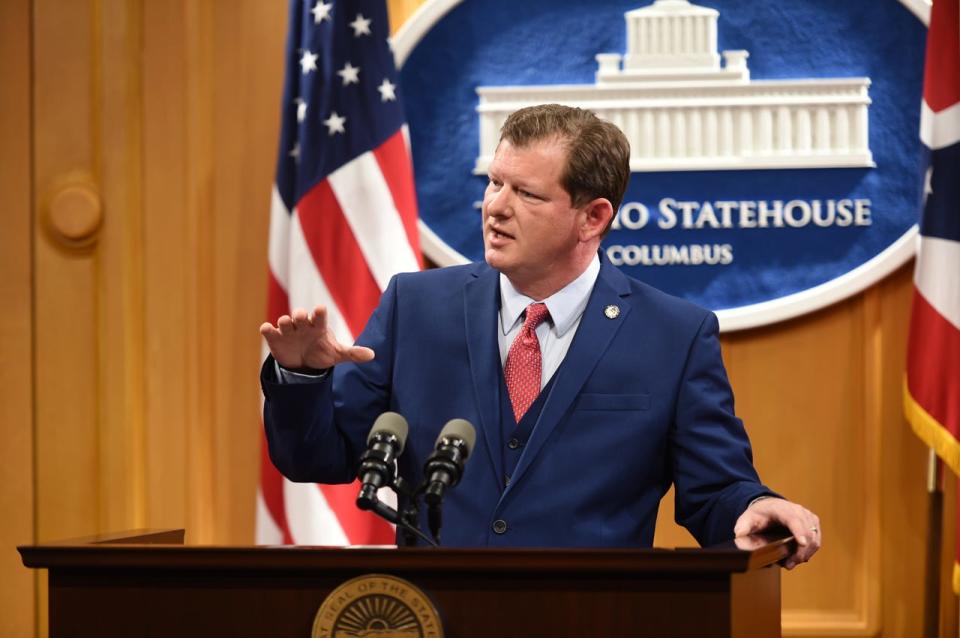Ohio Senate GOP, House speaker clash over August election to change constitution rules

Ohio Senate Republicans are taking efforts to make it harder to amend the state constitution into their own hands.
One problem: The speaker of the House is not on board with their plan.
Sens. Theresa Gavarone, R-Bowling Green, and Rob McColley, R-Napoleon, introduced their own resolution Wednesday that would require 60% of voters to enact constitutional amendments, instead of a simple majority. Like the House version, the measure is an amendment that would need approval from voters to take effect.
Gavarone and McColley also put forward legislation to set a $20 million special election in August for that purpose − just months after lawmakers got rid of most August elections.
More:How Ohio lawmakers brought Larry Householder into fight over state constitution rules
"For years, well-funded, out-of-state special interests have manipulated the process to amend our Constitution for their own gain," Gavarone tweeted Wednesday. "SJR 2 will take power away from those special interests and give it back to Ohioans."
But the Senate proposal could face a messy path to passage. House Speaker Jason Stephens, R-Kitts Hill, said Thursday that he doesn't support an August election, meaning the measure could stall in the House.
"We just voted to not have those anymore just a few months ago," Stephens said. "The county election officials I've talked to are not interested in having it. I'm frankly not interested in having an election in August."

How did we get here?
The Senate resolution is the latest wrench in a controversial process.
Rep. Brian Stewart, R-Ashville, and Secretary of State Frank LaRose tried to fast-track the proposal during last year's lame-duck session, but it didn't have enough support in the House to pass. Stewart brought it back in January, and it's been slow to get off the ground since then. He claimed stalling the resolution was part of a deal Stephens made with Democrats to get the speaker's gavel earlier this year.
A House committee held its first hearing on the resolution Wednesday, attracting throngs of people who oppose it.
The delays frustrated Senate President Matt Huffman, R-Lima, who was ready to pass a bill during lame duck and put the question on the May ballot. He floated the possibility of an August election earlier this week, in part to get ahead of a likely November ballot initiative that would expand abortion access in Ohio.
"If we save 30,000 lives as a result of spending $20 million, I think that’s a great thing," Huffman told reporters Thursday.
Anti-abortion groups have urged lawmakers to put the amendment question before voters as soon as possible.
Lawmakers got rid of August elections to save money
The core of the Senate proposal is the same as Stewart's, but it does not include some changes he made in January. For example, Stewart's version would require petitioners to get voter signatures from all 88 counties instead of 44.
Stewart said he's encouraged to see the Senate getting involved in the conversation.
"I'm not happy with the pace we've had in the House, so I'm sure they've had similar frustrations," he said.
Stewart declined to say whether he'd support an August election for the ballot question, noting that's solely a Senate proposal at this point. He, like many other Republicans, backed the state's new voting law that eliminates most local special elections in August to save taxpayer dollars.
Plus, voters tend not to participate in these elections. In testimony on the bill last year, LaRose said 2020 August special elections in Hamilton County and Cuyahoga County had 11.8% and 6.8% turnout, respectively.
"That means just a handful of voters end up making big decisions," LaRose said. "The side that wins is often the one that has a vested interest in the passage of the issue up for consideration. This isn’t how democracy is supposed to work."
USA TODAY Network Ohio Bureau reporters Jessie Balmert and Anna Staver contributed.
Haley BeMiller is a reporter for the USA TODAY Network Ohio Bureau, which serves the Columbus Dispatch, Cincinnati Enquirer, Akron Beacon Journal and 18 other affiliated news organizations across Ohio.
Get more political analysis by listening to the Ohio Politics Explained podcast
This article originally appeared on The Columbus Dispatch: Ohio Senate GOP sets plan for August election, changes to constitution

